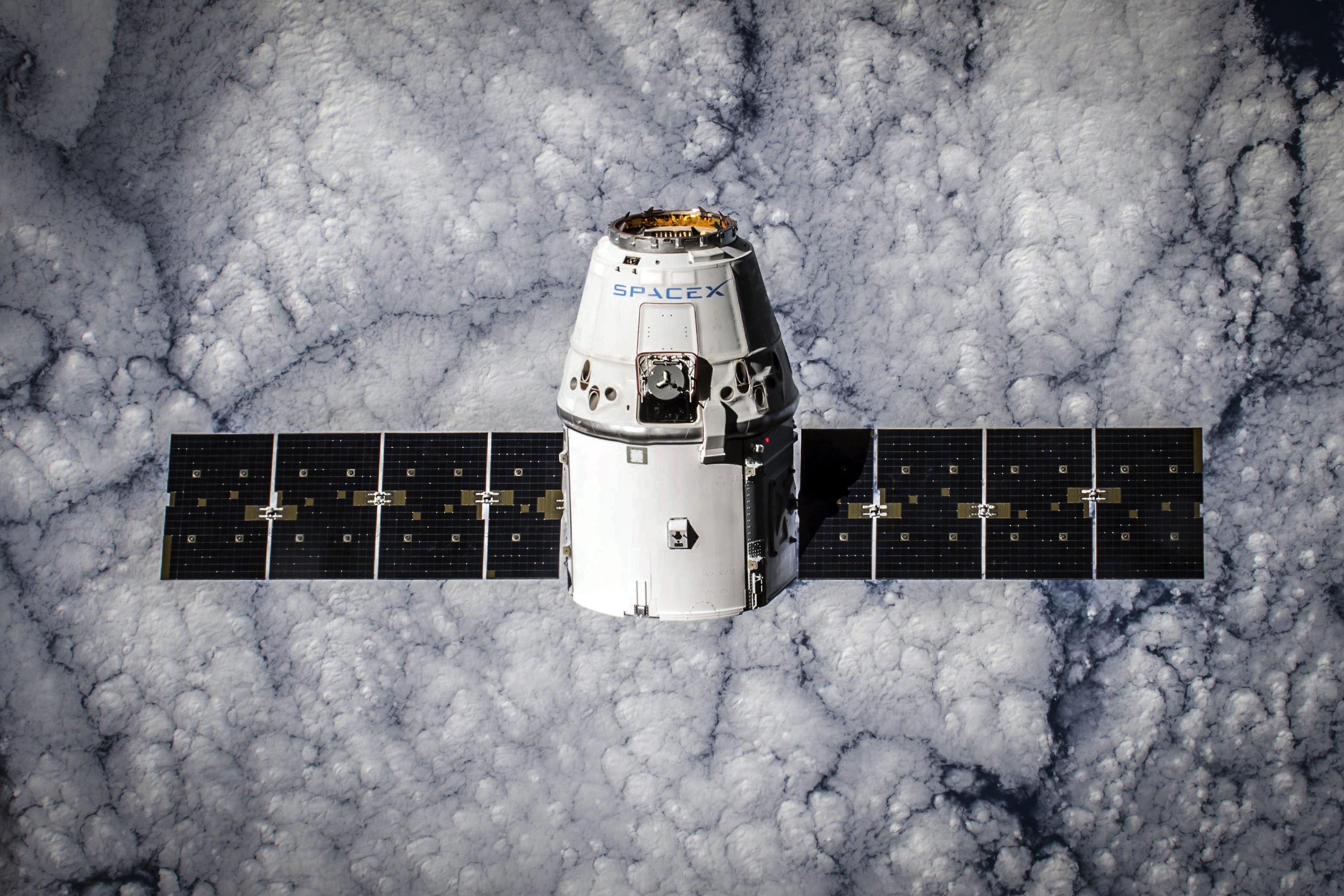As we learned last week, Elon Musk’s innovative commercial rocket company, Space Explorations Technology—or SpaceX, as it’s more commonly known—has landed in the Puget Sound area.
Expecting to employ 60 people “in the short run,” according to Bloomberg News, Musk describes the future workspace as “a satellite office for satellites.” And while Musk’s company has interplanetary designs—this month SpaceX conducted its fifth commercial resupply mission to the International Space Station for NASA, and Musk’s ultimate goal of making human life on Mars a reality is well known—in the Northwest the company’s biggest impact may be on the local economy. Headquartered in Los Angeles, SpaceX already employs over 3,000 people across the country, including in offices in Houston and Washington, D.C. Musk has said that his new SpaceX office—in Redmond, reportedly—will hire as many as 1,000 people in three or four years.
Space, just as it’s been since Boeing began construction of the Lunar Rover back in 1969, is big business in the Northwest. And Musk isn’t alone in identifying our region as a prime location to do business.
While the aerospace industry is nothing new to our region, within the past decade a number of smaller companies have also decided to call the Seattle area home. According to Governor Jay Inslee’s office, roughly 30 companies statewide (excluding Boeing) do space business in Washington, employing some 2,000 people. Planetary Resources, for example, also based in Redmond, has built a nimble company of over 40 employees working on the mining of asteroids. Company President and Chief Engineer Chris Lewicki has been known to optimistically foresee the Pacific Northwest as the “Silicon Valley of aerospace.”
“Seattle is a center for innovation in a lot of different things,” Lewicki tells Seattle Weekly when asked why Planetary Resources chose to locate here in 2010. “Boeing has a very long arm here, and for a long time that included a lot of aerospace activity. Those things are good in terms of thinking as a small company and as a start-up, and being able to leverage resources.”
Lewicki identifies the existing aerospace institutions and facilities that have been built here over the years, thanks to institutions like Boeing and Aerojet Rocketdyne, as a huge draw for upstart companies such as his. “From a technology standpoint, everything that our type of space company really needed was already here,” he says.
“It gets down to facilities,” he says. “In the manufacturing and building of a satellite, as a start-up, we don’t necessarily want to build up all our facilities. [In the Pacific Northwest,] those things are available to rent. We can rent them the same way Boeing does. Everything we need . . . . they’re all right at hand here in Puget Sound.”
But make no mistake, the Pacific Northwest’s pool of potential employees—from those with aerospace backgrounds to the growing wealth of tech talent—is the region’s biggest selling point. Among Planetary Resources’ workforce are Pacific Northwest natives and University of Washington grads skilled in the trade of aerospace. SpaceX will likely pull some of its own workforce from the same population.
“There’s a huge amount of talent in the Seattle area, and a lot of you guys, it seems, don’t want to move to L.A.,” Musk told the crowd—described by Dominic Gates of The Seattle Times as “hand-picked engineers identified by SpaceX recruiters as potential hires”—during a private event last week at Fischer Pavilion.
Seattle is quickly establishing itself as a big-time destination for companies looking to make money off the stars. As Alex Pietsch, director of Gov. Inslee’s aerospace office and an advisor to the governor on issues related to space, notes, “I think the SpaceX decision just further illustrates that fact.”
Pietsch tells Seattle Weekly that the state offered no incentives to lure SpaceX to town, but he admits that the Pacific Northwest is one of a handful of regions known as hotbeds of the industry, and that the competition among these places to land future business is very real. With L.A., Houston, and Washington, D.C., Pietsch says, the Puget Sound region is on the short list for any company looking to get into the business. Other states, like Colorado and Ohio, are aggressively trying to break in, according to Pietsch, and are not shy about routinely offering things like tax breaks, cash payments, facilities, and infrastructure as incentives.
In other words, the space race is real, and will likely only intensify.
“In this case we didn’t have to do a whole lot,” Pietsch says of Musk’s decision to bring SpaceX to town. “They identified this as place they wanted to be without us going and finding them.
“States and regions are competing every day for this type of investment. We’re competing every day,” Pietsch says. “There are states that would kill for this kind of opportunity.”
mdriscoll@seattleweekly.com








